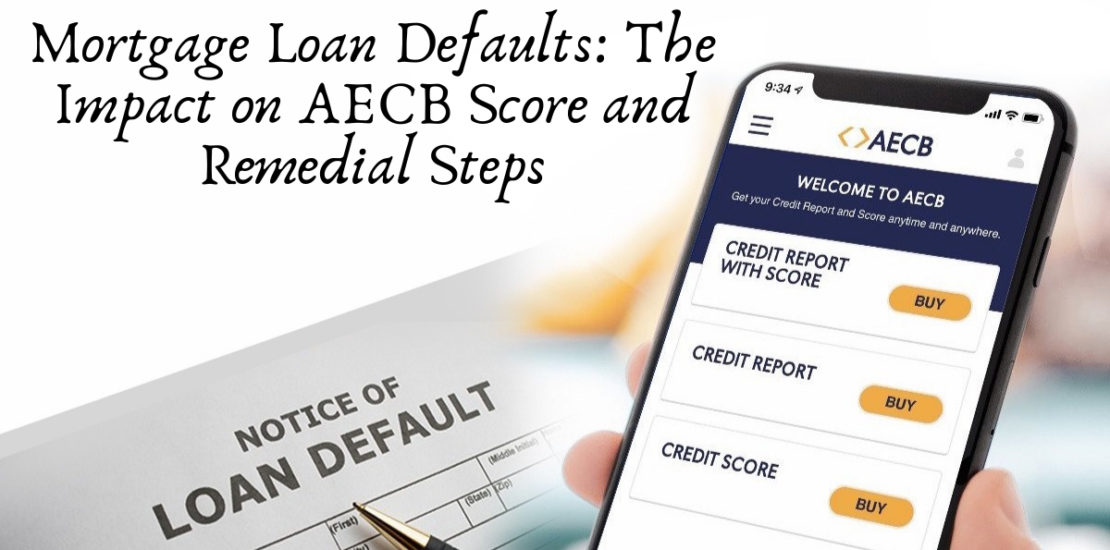- June 29, 2021
- Posted by: Sarbavoum Bidhar
- Categories: Financial Services, Loan restructuring program

COVID-19 has brought unpleasant surprises to many. People who were always diligent with their home loan repayments face the risk of defaulting on their mortgage dues. Affected individuals must deal with short-term financial shocks and worry about the long-term consequences of this financial distress. In the short term, people must face a cash crunch and worry about any legal action by mortgage lenders. In the long term, defaulting on mortgage loan payments can also affect an individual’s creditworthiness. This article discusses how defaulting on your mortgage loan payments can affect your AECB credit score and how you can save it from reducing.
An Overview of the AECB Credit Score
The Al Etihad Credit Bureau (AECB) issues credit scores in the UAE. An individual’s credit score is a three-digit number between 300 and 900. It represents their creditworthiness and riskiness to lenders. Lenders use the credit score to decide whether to lend money to a potential borrower and, if yes, at what interest rates. Lenders prefer credit scores above 700.
The AECB uses more than 2,000 data points to calculate the credit score. It collects data from banks, credit card companies, insurance companies, utility services providers, and the UAE’s courts. Every UAE resident with credit cards, mortgages, or utility bills on their name has a credit score.
Impact of Missed Mortgage Payments on AECB
If you have missed home loan repayments in the recent past, it will hurt your credit score. Even if you had a great record of making timely payments towards your dues, your recent track record could bring down your credit score.
Borrowers with a low credit score could get lower credit card limits or face rejection of future loan applications. Even if they manage to get a loan despite a poor credit score, they will have to pay higher interest rates than people with acceptable credit scores.
Steps to Save your Credit Score from Worsening
If you are facing a pay cut or job loss due to COVID-19, here are some things you can do to maintain your credit score.
Pay Your Dues on Time
Ideally, you should honor all your debt commitments, such as mortgage payments and credit card dues. If you are facing a cash crunch, you should cut down on your living expenses so you have enough cash to honor your obligations towards lenders.
Seek a Payment Holiday
Banks in the UAE are offering payment holidays to those whose incomes have been affected by COVID-19. If you are in that category, you should try to get a payment holiday from your bank. If you miss mortgage payments after obtaining a payment holiday, your credit score will not be affected.
Negotiate a Settlement with Your Lender
If you cannot get a payment holiday, you should aim to negotiate a debt settlement program with your lender. Debt settlement programs can include various solutions, such as moderating your mortgage liabilities or closing your mortgage by selling your property.
FREED can Help Negotiate a Debt Settlement Program
FREED provides debt restructuring services to individuals struggling with mortgage liabilities. FREED has an experienced team of mortgage debt experts with over 40 years of experience in banking and real estate. FREED has helped many borrowers negotiate a settlement with their bank and save their credit score from deteriorating.

